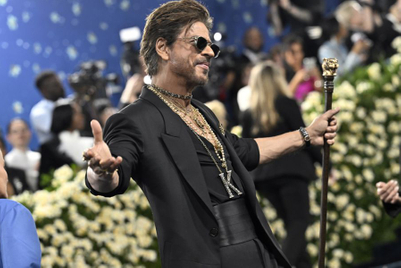Technology has indeed revolutionised the way brands connect with their target audience, but it has also led to a decline in emotional engagement with consumers.
In today's world, brands have access to consumers like never before, but this accessibility has come at a cost. With this increased connectivity, consumers are left feeling disconnected from the brands they interact with, and emotional engagement has taken a back seat.
One of the biggest examples of this is McDonald's, the world's largest fast-food chain.
Despite its massive popularity, McDonald's has struggled to connect with consumers on a personal level, leading to declining sales in recent years. Coca-Cola, one of the most recognisable brands globally, has also faced criticism for its lack of emotional engagement with consumers. While Coca-Cola's marketing campaigns are often creative and visually stunning, they often fail to connect with consumers on a deeper, emotional level.
Amazon, the world's largest online retailer, connects customers to products from all over the world, but its personalised product recommendations and streamlined shopping experience often leave consumers feeling disconnected from the brand.
Apple, known for its sleek designs and innovative products, has faced criticism for its lack of emotional engagement with consumers. While Apple's products are often impressive, its marketing campaigns and customer service interactions often lack the personal touch that consumers crave.
Even Google, the world's most popular search engine, has faced criticism for its lack of emotional engagement with consumers.
In India, Flipkart, Paytm, Ola, Zomato, and Jio have all faced similar criticisms for their lack of emotional engagement with consumers. While their services are often convenient and useful, they often fail to connect with consumers on a deeper, emotional level. This lack of emotional engagement can make consumers feel like the brands they interact with are transactional and lacking in purpose.
However, it is not all doom and gloom for brands. Emotional engagement can still be achieved if brands take the right steps. Brands need to move beyond the binary and the transactional and show vulnerability and stand for a cause. Nike's recent campaigns are an excellent example of how brands can engage with consumers on a deeper, emotional level. By standing up for a cause, Nike has been able to connect with consumers on an emotional level, which has led to increased sales and brand loyalty.
In conclusion, while technology has made it easier than ever for brands to reach out to their target audience, emotional engagement cannot be taken for granted.
Brands need to move beyond the binary and the transactional and show vulnerability and stand for a cause. If done correctly, emotional engagement can be achieved, which can lead to increased sales, brand loyalty, and a deeper connection with consumers.
(The author is CEO, DY Works)





.jpg&h=334&w=500&q=100&v=20250320&c=1)
.jpg&h=334&w=500&q=100&v=20250320&c=1)



.jpg&h=334&w=500&q=100&v=20250320&c=1)
.jpg&h=334&w=500&q=100&v=20250320&c=1)

.jpg&h=334&w=500&q=100&v=20250320&c=1)






.jpg&h=268&w=401&q=100&v=20250320&c=1)

